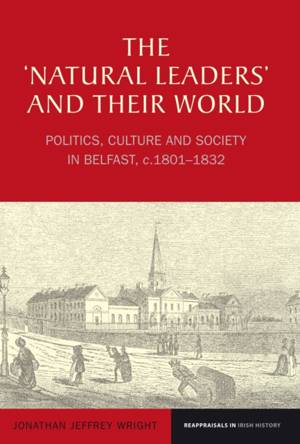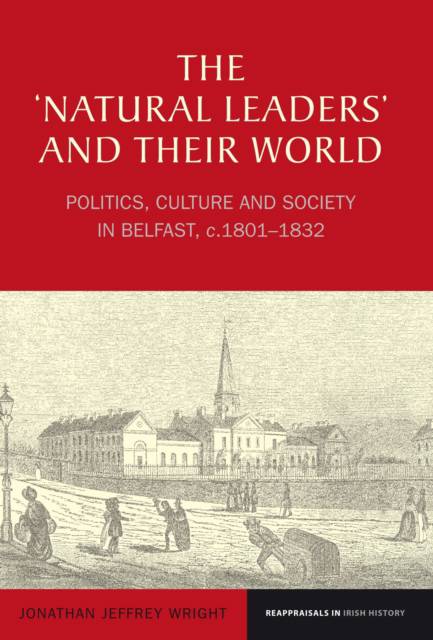
- Retrait gratuit dans votre magasin Club
- 7.000.000 titres dans notre catalogue
- Payer en toute sécurité
- Toujours un magasin près de chez vous
- Retrait gratuit dans votre magasin Club
- 7.000.0000 titres dans notre catalogue
- Payer en toute sécurité
- Toujours un magasin près de chez vous
The 'Natural Leaders' and Their World
Politics, Culture and Society in Belfast, C. 1801-1832
Jonathan Jeffrey Wright
34,95 €
+ 69 points
Format
Description
This book is a richly detailed exploration of the complex and cosmopolitan urban culture inhabited by the Presbyterian elite of late-Georgian Belfast, which will prove to be of interest to a wide range of scholars working on the political, cultural and intellectual histories of both Ireland and Britain during the age of reform. Employing both biographical and thematic approaches, the book begins by examining the story of the Tennents, one of the most prominent Presbyterian families in early-nineteenth-century Belfast, before turning to reconstruct their milieu. Challenging existing narratives, the study provides a major re-assessment of the political life of late-Georgian Belfast, highlighting the activities of a close-knit group of advanced reformer - the 'natural leaders' of the books title - who sought to promote the cause of reform and engage with British and European political events. In addition, the book contains the first serious scholarly examination of the cultural and intellectual life of the town in the early-nineteenth century, and the first major treatment of the middle classes' philanthropic activities. The interplay of politics and culture is discussed, as is the accuracy of Belfast's reputation as the 'Athens of the North' and the religious underpinnings of the town's charitable societies. In examining these areas, attention is paid to the influence of trends such as romanticism and evangelicalism and of writers such as Lord Byron, Walter Scott, Robert Owen and Thomas Chalmers, and it is argued that, both culturally and politically, the Presbyterian middle classes of Belfast inhabited a British world.
Spécifications
Parties prenantes
- Auteur(s) :
- Editeur:
Contenu
- Nombre de pages :
- 284
- Langue:
- Anglais
- Collection :
- Tome:
- n° 1
Caractéristiques
- EAN:
- 9781846318481
- Date de parution :
- 03-01-13
- Format:
- Livre relié
- Format numérique:
- Genaaid
- Dimensions :
- 163 mm x 236 mm
- Poids :
- 680 g

Les avis
Nous publions uniquement les avis qui respectent les conditions requises. Consultez nos conditions pour les avis.






